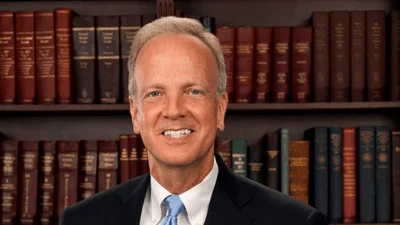Congressman Sanford Bishop (D-GA), Chair of the Agriculture, Rural Development, Food and Drug Administration, and Related Agencies Subcommittee, delivered the following remarks at the Subcommittee's oversight hearing on the FDA’s Foreign Drug Inspections Program.
"I would like to welcome everyone to today’s hearing on this very important topic.
Our witness today, Dr. Mary Denigan-Macauley, has been at the Government Accountability Office since 2001 and has a wealth of knowledge on the issues we will be discussing. We look forward to hearing from you and thank you for your close attention and hard work to highlight this issue.
Today, three quarters of the supply of active pharmaceutical ingredients and about half of the supply of finished doses for the U.S. market are produced overseas. In the past, the FDA focused on hitting inspection targets to ensure certain facilities were being inspected on a predictable schedule. The rapid and continued growth in foreign facilities has made it impossible to continue this approach. FDA now employs a risk-based model for selecting and prioritizing inspections.
The past thirty years have brought tremendous growth in the global pharmaceutical market. The GAO has been studying the FDA’s foreign drug inspections program for nearly that entire period. And since 2009, GAO has placed FDA’s ability to oversee the global pharmaceutical supply chain, which includes the foreign drug inspections program, on its high-risk list. This is unacceptable. The highest priority of the FDA is to ensure the safety and efficacy of medical products. The countless Americans who depend on lifesaving drugs each day shouldn’t have to worry about whether that drug was produced in a dangerous facility.
I have been troubled by recent news reports about the dangers of tainted drugs and unacceptable manufacturing practices coming from overseas. Instances of contaminants making their way into blood pressure medications, reports from inspectors who have observed paper shredding campaigns, and descriptions of inspectors playing a cat and mouse game with foreign manufacturers intent on hiding problems paints a frightening picture of the global health of our drug supply. Inspections are some of our most valuable tools in the fight against fraud, and it sounds like we have to do better.
We are here today to discuss how the FDA conducts foreign inspections compared to domestic ones, how the FDA’s inspection efforts have been impacted by COVID-19, and how the FDA can improve its foreign drug inspections program moving forward. To put it simply, we will use what we learn today to keep FDA accountable, and most importantly, make them do their job.
The importance of this task cannot be overstated, considering that nearly all foreign inspections have been on pause since the outbreak of COVID-19. Whether this requires more resources to enhance our domestic manufacturing capabilities or whether this requires larger investments to deploy more inspectors abroad, I am committed to ensuring the FDA has the right tools and carries out the right policies to address this crisis.
Last year’s bill included $3.5 million to help the FDA strengthen its inspections programs in China and India and reduce the practice of providing months of notice before conducting an inspection. I hope it will become an important tool to help address inspections issues from COVID-19 and beyond.
Dr. Denigan-Macauley, I want to again express my appreciation for your participation today. I look forward to hearing from you about what challenges remain and how we can help improve the foreign drug inspections program moving forward."
Source: U.S. Department of HCA








